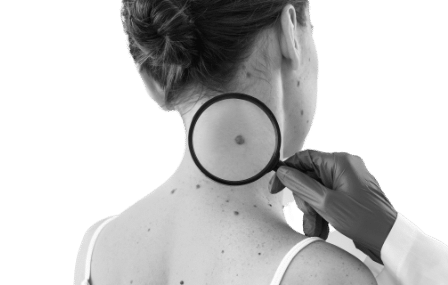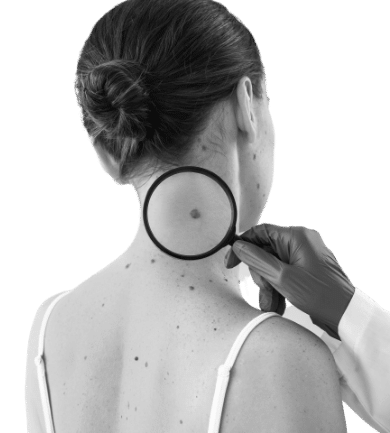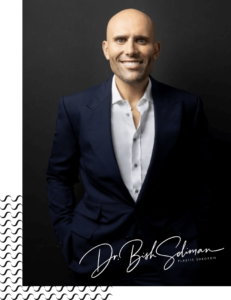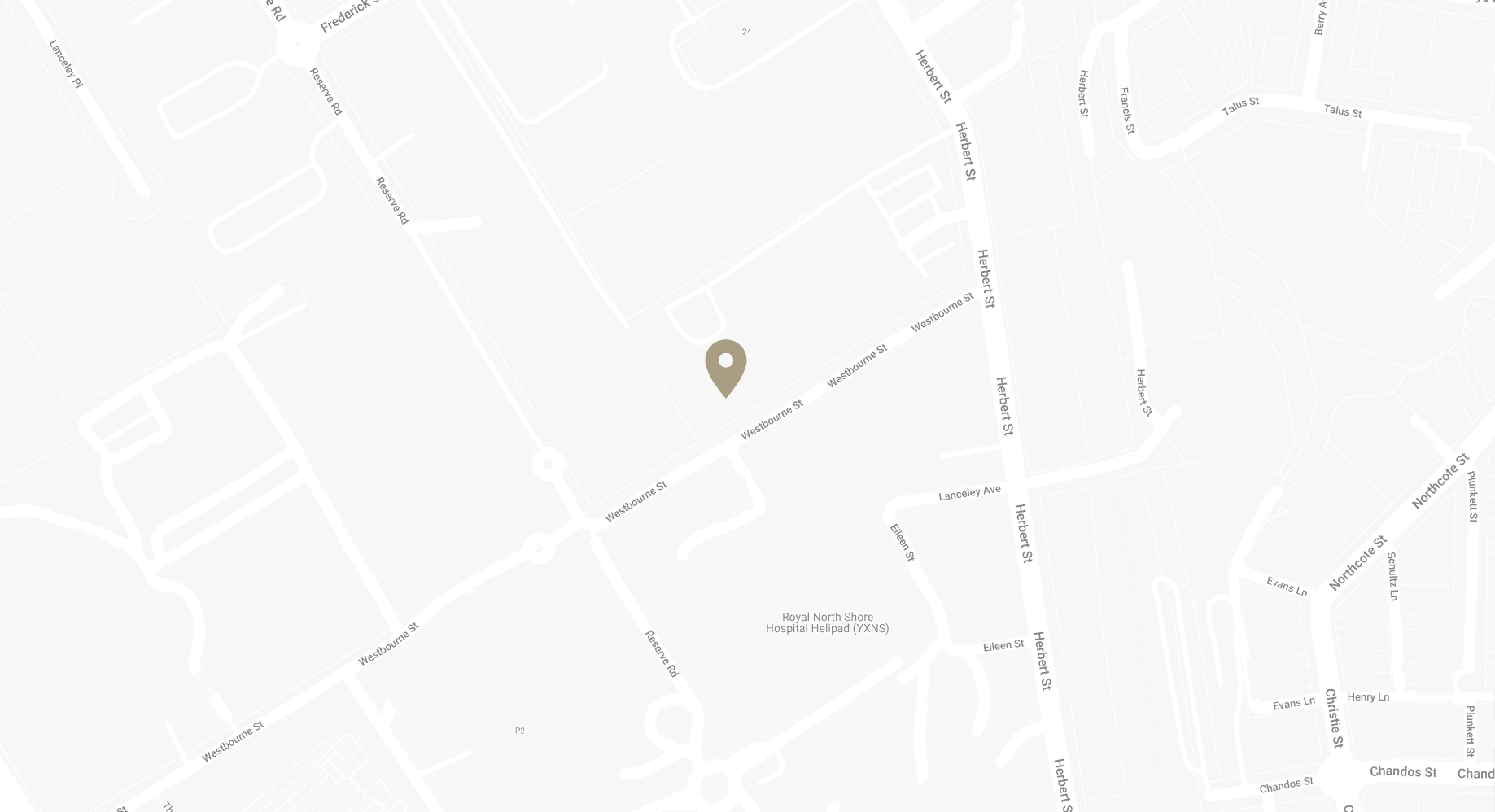Skin cancer is characterised by an abnormal growth of skin cells, usually in areas frequently exposed to the sun. The UV rays cause the skin to mutate, leading it to change colour and texture over time, often in the form of lumps, scaly spots, or irregular moles. However, some skin cancers can appear in areas that do not usually see sunlight, and for this reason, regular skin checks are important. If cancer is caught in its early stages, it can be safely removed with minimal damage to the skin. Surgical removal of malignant skin lesions will ensure the cancerous cells do not spread to other areas of the body.
Skin Cancer Symptoms
Cancerous lesions come in various shapes and sizes and usually begin as pre-cancerous spots. Whilst these pre-cancerous lesions are slow-growing and not immediately dangerous, they should still be examined and removed if necessary. Cancerous spots commonly appear on areas exposed to sunlight, such as the face, scalp, ears, shoulders, and hands. Common symptoms include:
- Lumps or patches of skin that look different from the surrounding skin
- A mole that changes colour, shape, or size
- Scaly, non-healing sores
- A spot that regularly bleeds
A professional will be able to examine your spots to determine if they are non-cancerous (benign) or cancerous (malignant). In some cases, a biopsy will be taken to determine whether your skin contains cancerous cells. If cancerous cells are found, you will need to have the lesion removed.
Skin Cancer Causes
A number of factors can impact a person’s susceptibility to skin cancer. Your risk can be influenced by:
- A genetic or family history of skin cancer
- Having fair or light skin
- Having a large number of moles or freckles
- Burning easily under the sun
- Spending large amounts of time in direct sunlight
Skin cancer can occur in people of any age and skin type. However, it is more common in people with fair skin. You can reduce your risks by practising safe sun protection and applying sunscreen before going outdoors.
Your personal consultation
Before your skin cancer removal, get personalised guidance from highly skilled Specialist Plastic Surgeon, Dr Bish Soliman. With years of experience, he will tailor your treatment for your skin condition and health. Book your personal consultation to receive:
- A thorough assessment of your skin lesions
- Personalised advice from Dr Soliman
- A customised treatment plan tailored to your skin needs
Skin CancerThe procedure
The most common form of skin cancer removal is surgical excision, whereby the spot or mole is cut out of the skin. The exact method of removal will depend on the nature of your cancer and the size of the affected area. Some cancerous lesions can cover a large surface area, and such cases may require a more extensive procedure.
During a standard excision, Dr Bish will inject local anaesthesia and use a surgical blade to completely remove the cancerous spot. Along with this, a thin border of healthy skin will be removed in order to ensure the entire growth is removed. Depending on the size and location of the removed skin, Dr Bish may use a skin graft or flap to ensure aesthetic closure.
Skin CancerAftercare and risks
After your skin cancer removal surgery, your skin will be re-examined by an accredited pathologist to ensure that all of the cancer is gone. If your skin still contains cancerous cells, you may need to undergo further treatments or surgery.
It is normal to experience some pain and swelling while your incision heals. We can prescribe medication to help you manage any pain or discomfort. Additionally, you will need to follow specific aftercare instructions to encourage successful wound healing. This may include keeping your incisions clean and dry, applying topical medications, as well as avoiding activities that could put a strain on the affected skin. You should also keep your incision site out of the sun, as exposure can cause discolouration.
Although complications are uncommon, skin cancer excision procedures come with some risks. These can include:
- Bleeding
- Infection
- Persistent pain and swelling
- Incomplete removal of the cancerous area
- Changes in skin sensation or colour
- Damage to nerves and blood vessels
- Reactions to anaesthesia
- Poor scarring
Learn More About Dr Bish Soliman
Dr Bish Soliman is a Sydney based Specialist Plastic and Reconstructive Surgeon specialising in complex microsurgical reconstruction including breast reconstruction, aesthetic surgery of the face, breast, and body as well as skin cancer surgery.




